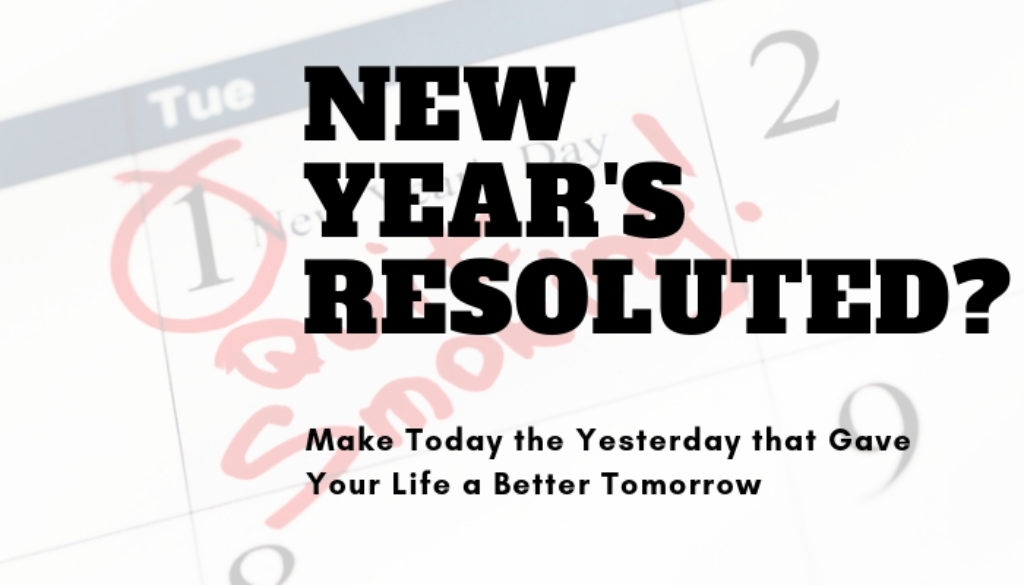New Year’s resolutions are certainly good, even great wonder and intent. I have made a few. I don’t remember any ever working out. But some things did work out. I ask: What was the difference? The difference is between January 3rd and December 28th.
Generally, I had resolved to make some resolutions right away, on the 1st. Then the 2nd came and went. Then finally my resolution to resolve resoluted on the 4th or 5th. I had already started to train myself in avoidance and delay. Training the exact opposite of the habit I desperately needed to establish: action.
I made the list. Set it down. And promised to look at it soon. To start, very, very soon. Just a couple of things to get out of the way first. The list waits. Then it waits. Then I needed to explain, justify, and support my outcome: lack of outcome. No problem. I have a list of those of ways to explain, justify, and support my desired adjustments to my life.
- I got started late, but I can start any time!
- I was busy. You know, all the hubbub around the holidays.
- The holidays are different. The regular year is soon to come.
- I have strong will. I can do this any time I want.
- Just as soon as I get this assignment out the door.
- Heck, I am pretty successful anyway. No big deal.
- Anyway, New Year’s is over. This is real, no fantasy dreams. Real stuff.
- I just need to make sure to avoid having my friends and family asking me.
- I will practice with my explanations.
- Oh well . . . Next year. Any time I want. Tomorrow.
That was January 5. Here’s what the “December 28 plan” looks like: “I started today.” It only took 10 minutes. It is my #1 priority. Started. Not promised. No muss. No fuss. No need to “explain, justify, and support.” Done. Started.
This year I employed the “December 28 plan.”
First, thank you for reading my stuff this year, and especially to those who have taken my classes. The Data Science topic is becoming very popular. It is the future. But the future does not happen right without doing the past right. The past must start right, right now. These 10 minutes. Then these 10 minutes become the successful past.
The days of the “trust me” appraiser are close to over. The days of “see my analysis” are here.
Appraisers are judged on believability (credibility). And those “credible assignment results” are based on two things: user expectations, and peer’s actions.
The word ‘accuracy’ is not found until USPAP Standard 3-3(a)(iii). The reviewer is to judge your accuracy. Presumably the reviewer has secret knowledge of the true value to compare against. Alternately, the reviewer can provide their own opinion of value, then presume that their opinion is correct, yours is not. Oh yeah – the appraisal reviewer must also be credible. It is required!
We start now to make today the yesterday that made our lives better tomorrow.
